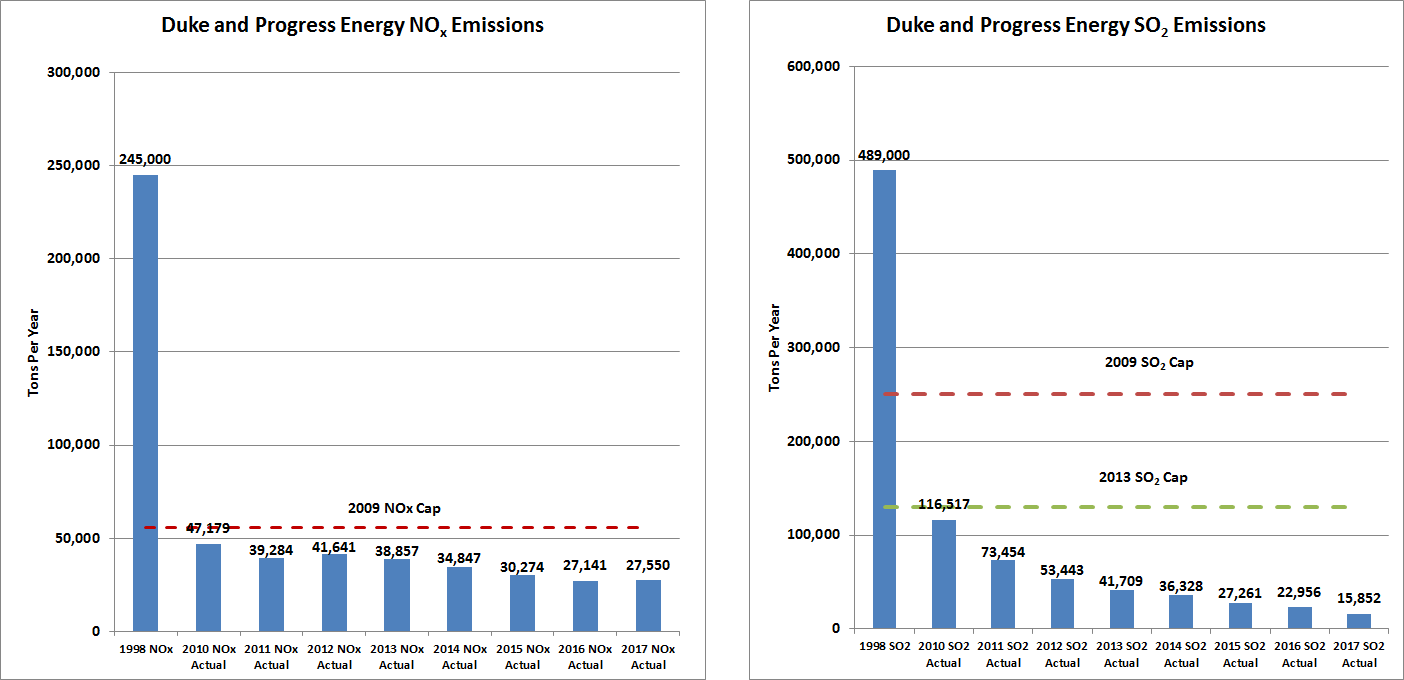Air Quality Legislation
North Carolina has a history of protecting air quality through state law.
Clean Smokestacks Act (CSA)
In June 2002, the N.C. General Assembly enacted the Clean Smokestacks Bill, officially titled the Air Quality/Electric Utilities Bill (SB 1078). It required significant actual emissions reductions from coal-fired power plants in North Carolina.
Under the act, power plants must reduce their nitrogen oxide emissions by 77% in 2009 and sulfur dioxide emissions by 73% in 2013.

The figure above shows nitrogen dioxide and sulfur emissions reductions achieved from 1998 to 2017 across the state.
Motor Vehicle Emission Inspection / Maintenance (I/M)
The Inspection/Maintenance (I/M) Program for cars and trucks makes sure that the air pollution controls are working properly on vehicles. This is important because motor vehicles contribute substantially to air quality problems.
Air Toxics
Session Law 2012-91 exempts certain sources of toxic air pollutants from North Carolina’s air toxics rules as long as the Division of Air Quality determines that the emissions from those facilities will not pose unacceptable risks to human health.
Additionally, a report on the implementation of the act to the Environmental Review Commission is required including an analysis of air toxic emissions changes and a summary of results of the divisions analysis of air quality impacts.
